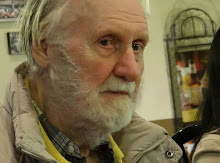In 1949, a renowned author named George Orwell wrote a novel entitled 1984, which depicted living conditions as they might become by that time. The book envisioned a wholly totalitarian world, with only three gigantic countries remaining in existence, each having derived from territorial conglomeration. They all ruled their citizenry in a terrifying manner, by the simple means of sheer news fabrication. The individual would receive a daily dose of disinformation about wars being fought, subversive activities attempted, and the utter necessity to maintain unceasing patriotic sentiment and loyalty by promptly reporting any suspected offenders to the central authorities. The nation known as Oceania, whose capital lay in London, had identified an anarchist named Emmanuel Goldstein, allegedly leading forces dedicated to undermining the so-called people’s government and everything it stood for. As matters turned out, however, no such person actually lived, having been fabricated to foster universal hatred, a feature most essential to the “inner party’s” undisputed control over the masses.
Although our own year 1984 came and went without the eventuality so grimly described by Mr. Orwell, we can’t help but wonder if our modern society leadership hasn’t been taking a few pages out of his work and putting them to comparable use, albeit not to such extremes. We’d like to cite a few reasons why we harbor suspicion in this regard.
For openers, one of comedian Bob Newhart’s earliest monologue sketches dealt with the presumed need to have created a public figure image for Abraham Lincoln, causing the man to appear somewhat more exciting than his true characteristics would convey. Although only a retroactive spoof, it clearly illustrated the principle of artificially fabricating a persona. The piece accurately mirrored practices known to be carried out today by TV wizards, in order to glorify candidates for office or intended prominence elsewhere.
Additionally, our private DVD collection happens to include certain films, among which are the following, based on situations of a factual or too close for comfort nature:
· Power, wherein a national election becomes a rivalry between image builders representing their respective candidates, with little or no concern over the issues each may be guided by;
· Wag the Dog, with the presidential election prospects getting completely overturned during the last eleven campaign days, by virtue of staging a bogus war scare and a fictitious martyred military hero;
· The Pentagon Papers, a biographical presentation of Daniel Ellsberg’s struggle to make the true Vietnam war results clearly understood, and the government’s two-fisted effort to discredit him;
· Network, a plot Larry King and others in the TV business consider to be pure realism put on film, explaining how the general public can be influenced and motivated solely through overblown or virtually concocted news coverage;
· Finally, JFK, where Oliver Stone endeavors to portray a believable cover-up of the actual circumstances surrounding the Kennedy assassination, and its attempt to identify a sole red-tinged young man as the culprit.
The above instances have dealt with two opposite poles, evidencing concentration either on hatred or heroic imagery, sometimes throwing both together. To our mind, each ranks as insidious as the other. Misguiding the multitude definitely falls under bearing false witness, according to the tablets God delivered to Moses. The obvious question has to be whether the U.S. government or the television industry deserves the greater guilt. In our opinion, it’s both, in the form of an ill-conceived, unofficial joint venture.
What we’re busting our tails to drive home in this piece is the extent to which utter phoniness has long been known to prevail at the highest political and show business levels, while the majority goes on blithely accepting the engineered news diet with little reservation.
It’s a foregone conclusion that our government requires a sense of national paranoia at all times, with the best means being through perpetual focus on at least one leading villain in the public eye, á la Orwell’s Emmanuel Goldstein. Interestingly, a fellow can be transformed from the world’s biggest schmuck into a nice guy almost overnight, whereas in some cases the exact reverse will occur. A few prominent examples from recent decades are shown below.
From mean s.o.b. to reasonably sound citizen, there have been:
· Yasser Arafat;
· Muammar Gadaffi;
· Manuel Ortega.
On the other hand, from half-way decent chap to downright louse, we offer:
· Fidel Castro;
· Manuel Noriega;
· Sadam Hussein.
The most notable feature is that elevating yesterday’s nastiest guy in the universe to today’s top semi-god must invariably be followed by immediate demotion of some new person to prime time satanic status.
Currently, however, we just may have established the all-time greatest villain in modern history, namely the very elusive Osama bin Laden, who’s been ducking our belligerent legions for such a long while that we can’t avoid wondering if such a bloke really does exist as such, or is represented only by photos of some humble middle eastern shepherd. Nevertheless, the sentiment mounted against him has become so overwhelming that our organized propaganda machine now seems to have put all its eggs in one basket.
Be that as it may, until the day arrives when this demonic personage is either slain or captured, we remain somewhat less than convinced about him and his so-called family connections not having been at least partially fabricated. Still, we’ll be more than pleased to acknowledge his evil authenticity, once duly proven.
Thursday, August 5, 2010
Subscribe to:
Comments (Atom)
